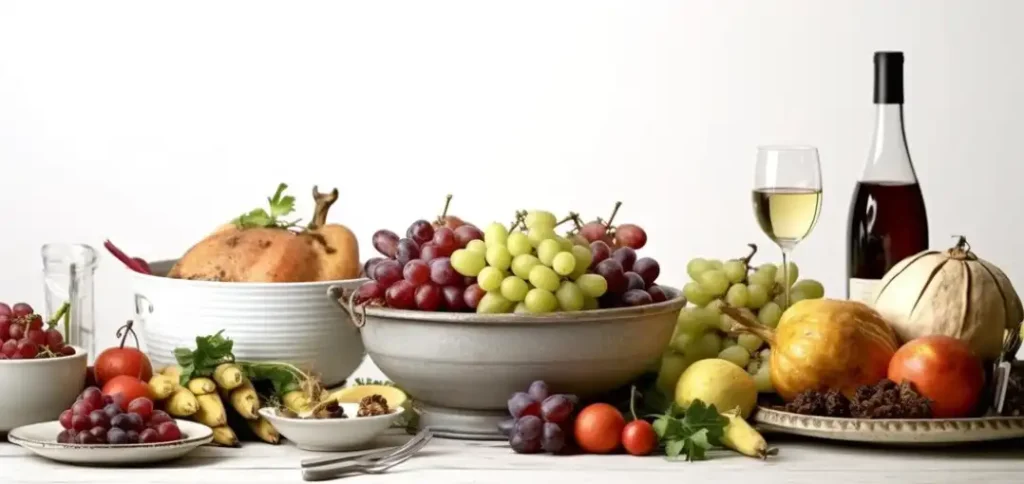
Does wine make you fat? If yes, how much?
Those who want to maintain the effects of training even at the table have certainly often wondered whether wine is a drink which, in addition to so much pleasure on the palate and some excellent nutrients, is also a source of fat and a stimulus for body to gain weight.
Will it be true? Trainers specializing in sports nutrition or nutritionists know well that studies in the sector are never at a standstill and, even recently, opinions have been discordant but have never pointed the finger at wine, a drink which is historically said to be good for you. blood…
A glass a day, and wine makes you lose weight!
For a long time it was thought that drinking even a little could increase the tendency to gain weight also due to the sugars contained in wine.
An American study, however, has debunked this myth by decreeing from the research laboratories of Harvard Medical School that drinking little has positive effects on weight . In fact, you gain less weight if you consume the classic glass of wine a day!
Those who absolutely avoid drinking, teetotalers, might even have more difficulty losing weight… despite some intuitive doubts, we could follow these studies which American nutritionists have indicated as a clear point in favor of moderate wine drinkers.
Weight gain between teetotalers and moderate wine lovers does not show any substantial differences and it is much more important to correctly calculate the nutritional and caloric intake of a glass of wine.
There is always a lot of research on wine, especially red, and the University of Navarro in Spain, for example, confirms the Harvard studies with publications that support how a small glass a day has various nutritious properties but does not promote weight gain at all. On the contrary, according to some theories, alcohol increases the heart rate and speeds up the metabolism by consuming more calories – or at least using up the ones it provides.
The calories contributed by wine to nutrition
According to calorie tables, 1 gram of alcohol is equivalent to 7 calories and, therefore, a glass of red wine could have an average equivalent of 120 calories while a white wine around 110 (slightly less alcoholic as a rule).
It is certainly known that alcohol is a highly caloric and sugar-rich food , which is why the quantities make the difference… Better understanding the relationship between alcohol content and caloric content is important for these purposes. We start from the grapes, from whose products wine is obtained, which contains sugars which transform into alcohol during fermentation.

The higher the alcohol content of the wine chosen for tasting, the greater the calorie intake and the propensity to gain weight if you drink at least 2-3 glasses.
Furthermore, the caloric content of wine also differs based on the production processes carried out, given that sugar can also affect the overall calories of the glass through its fermentation.
The sugar residues in some wines are minimal and therefore it is not always easy to determine the exact energy intake, considering that the quantity of sugars present in the wine is not present on the label (since it is not mandatory to indicate it).
Only in sparkling wines does the regulation require the sugar content to be indicated , however through wording that wine experts know how to decipher best – such as the brut nature which has low sugar content, and the doux to indicate those with a high sugar content.
How much wine should you consume per day?
Our daily need for nutrients varies depending on the sporting activity carried out but, in general, the proportions are constant between a relationship that sees carbohydrates – sugars in the foreground, with a minimum 50 percent nutritional intake, followed by fats a minimum of 15 and a maximum of 35%, and then proteins, up to 15% of the daily dose of food. For athletes, who need a higher protein intake, the protein content can rise up to 20 or 25% depending on the training carried out.
And the wine? Conscious and moderate consumption of wine can account for approximately 7-10% of your daily energy needs , i.e. a couple of glasses of wine with an average alcohol content.
It should be remembered that drinking a glass of wine involves an average calorie intake lower than many drinks on the market and spirits, as well as being less caloric than a beer. This happens because, although the caloric value of wine is higher than some of these drinks, larger doses are generally consumed compared to a single glass of wine.
Furthermore, energy drinks are also often rich in sugar and several sports nutrition researchers agree that it is better to take magnesium and potassium supplements without colourants, rather than sugary “soft drinks”.
For those who still want to get rid of the excess sugars given by the elusive glass, it is good to remember that a glass of wine is more or less equivalent to an hour of training in the gym at a gentle pace.
Benefits of wine, the resveratrol of red
Regardless of how and how much a glass of wine makes you fat, the health effects of drinking it can be positive if you consider the presence of resveratrol in red wine.
It is a phenol, i.e. a substance present in nature in various plants including the skin of grapes, which develops as a defense against bacteria and fungi. Several scientific studies have attributed resveratrol a preventive action against cardiovascular diseases , as well as an anti-inflammatory and anti-aging function.
Its property capable of promoting blood fluidization can help those who do not carry out much physical activity but want to preserve heart health, blood sugar regulation and prevent senile dementia.
Of course, it’s a question of ingesting modest quantities given that excess alcohol causes the exact opposite, but a glass a day can perhaps keep the doctor away, like apples…
see also: At what age can children be given beets?